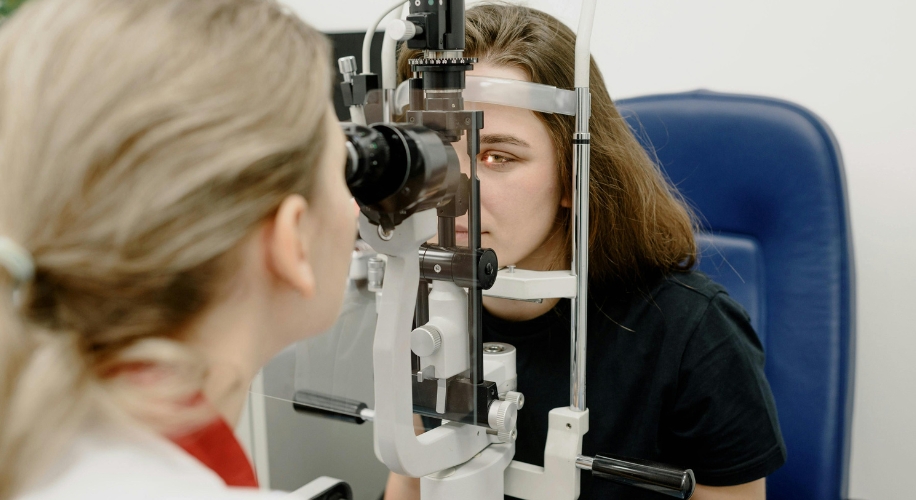Flashes and Floaters: Recognizing the Signs of a Retinal Detachment
- BY Dr. Steven Liem
- IN Eye Health

Photo by Azim Islam
A retinal detachment is a serious eye condition that requires prompt medical attention to prevent permanent vision loss. Understanding the signs, symptoms, and treatment options for a detached retina is crucial for preserving vision and maintaining overall eye health.
What is a Retinal Detachment?
The retina is the layer of tissue located at the back of the eye that is responsible for capturing visual images and transmitting them to the brain via the optic nerve. A detached retina occurs when the retina becomes separated from its underlying supportive tissue. This detachment can lead to vision loss if not addressed promptly.
Signs and Symptoms
A detached retina may present with any of the following symptoms:
- Floaters: Dark spots or specks that float across your field of vision.
- Flashes of Light: Seeing sudden flashes or bursts of light in your peripheral vision.
- Blurry Vision: Experiencing sudden blurred or distorted vision.
- Shadow or Curtain Effect: Seeing a shadow or curtain-like obstruction moving across your field of vision.
If you experience any of these symptoms, seek immediate medical attention to prevent permanent vision loss.

Photo by Philippe Donn
Prevention Tips
While some risk factors for a detached retina, such as age and family history, cannot be controlled, there are steps individuals can take to reduce their risk:
- Regular Eye Exams: Individuals with high prescriptions are at a higher risk for retinal detachments. Routine eye exams can help detect early signs of retinal detachment and allow for timely intervention.
- Protective Eyewear: The force from trauma to the eye can detach the retina. When engaging in activities that pose a risk of eye injury, such as sports or work involving impact or flying debris, wearing protective eyewear can help prevent trauma to the eye.
- Manage Underlying Conditions: Conditions such as diabetes and high blood pressure can increase the risk of a retinal detachment. Managing these conditions through medication, lifestyle changes, and regular medical care can help lower the risk.
Treatment Options
Treatment for a detached retina typically requires surgical intervention to reattach the retina and restore vision. Common treatment options include:
- Scleral Buckle: This procedure involves placing a silicone band around the outside of the eye to gently push the retina back into place and hold it there.
- Pneumatic Retinopexy: In this procedure, a gas bubble is injected into the eye to push the detached retina back into place. Laser or freezing therapy is then used to seal the retina in its proper position.
- Vitrectomy: During a vitrectomy, the vitreous gel inside the eye is removed, and any scar tissue pulling on the retina is carefully peeled away. The eye is then filled with a gas or silicone oil bubble to help reattach the retina.

Photo by Ksenia Chernaya
By staying proactive about eye care and seeking prompt medical attention for any sudden symptoms, individuals can reduce their risk of vision loss due to retinal detachment. Whether you require prescription lenses or protective eyewear post-surgery, Zenni Optical is here to help support your eye health journey.

